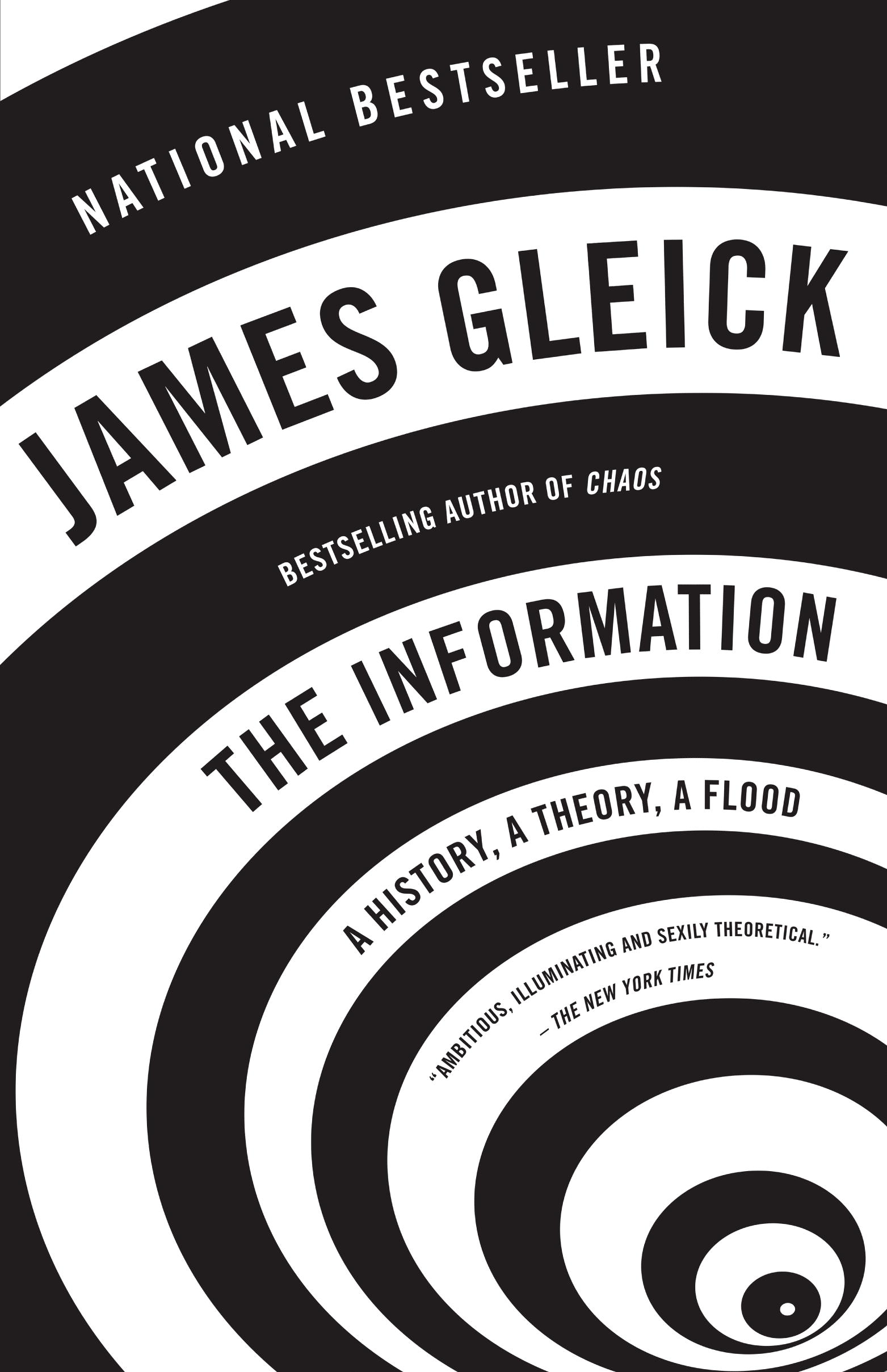
The Information
What our world is made of, and why we have such mixed feelings about that.
An account of how our relationship to information has transformed the very nature of human consciousness: the history of communication and information, from Africa’s talking drums to the invention of written alphabets; from the electronic transmission of code to the origins of information theory, into the new information age and the current deluge of news, tweets, images, and blogs. Along the way, Gleick profiles key innovators, including Charles Babbage, Ada Lovelace, Samuel Morse, and Claude Shannon, and reveals how our understanding of information is transforming not only how we look at the world, but how we live.
Winner of the 2012 Royal Society Prize for Science Books and the PEN/E. O. Wilson Literary Science Writing Award.
Purchase
“The Information is so ambitious, illuminating and sexily theoretical that it will amount to aspirational reading for many of those who have the mettle to tackle it. Don’t make the mistake of reading it quickly. Imagine luxuriating on a Wi-Fi-equipped desert island with Mr. Gleick’s book, a search engine and no distractions. The Information is to the nature, history and significance of data what the beach is to sand.” Janet Maslin, The New York Times
“Gleick is one of the great science writers of all time, and that is, in part, because he is a science biographer. Not a biographer of scientists (although there is much biographical insight to scientists, mathematicians, lexicographers, writers and thinkers in The Information), but a biographer of the idea itself, and the way that it ricochets off disciplines, institutions and people, knocking them into new, higher orbits, setting them on collision courses…. The Information isn’t just a natural history of a powerful idea; it embodies and transmits that idea, it is a vector for its memes (as Dawkins has it), and it is a toolkit for disassembling the world. It is a book that vibrates with excitement, and it transmits that excited vibration with very little signal loss. It is a wonder.” Cory Doctorow
“To grasp what information truly means—to explain why it is shaping up as a unifying principle of science—Gleick has to embrace linguistics, logic, telecommunications, codes, computing, mathematics, philosophy, cosmology, quantum theory and genetics. He must call as witnesses not only Charles Babbage, Alan Turing and Kurt Gödel, but also Borges, Poe and Lewis Carroll. There are few writers who could accomplish this with such panache and authority. Gleick, whose 1987 work Chaos helped to kickstart the era of modern popular science, is one.” Philip Ball
“The web Gleick has woven is a rare one, a whole that envelops and exceeds its many parts, which certainly suits his topic. His contribution—too easily underrated in a work that synthesizes the ideas of others—lies in linking fields of science that aren’t connected in a formal sense. By the close of the book you cannot think of information as you might have before. It has become, quite palpably, something different than almost anything we encounter: resistant to decay and capable of perfect self-reproduction. It outlasts the organic beings who create it, and, by replication, the inorganic mediums used to store it. Gleick’s deepest subject, it occurred to me as I finished reading, is immortality.” Tim Wu